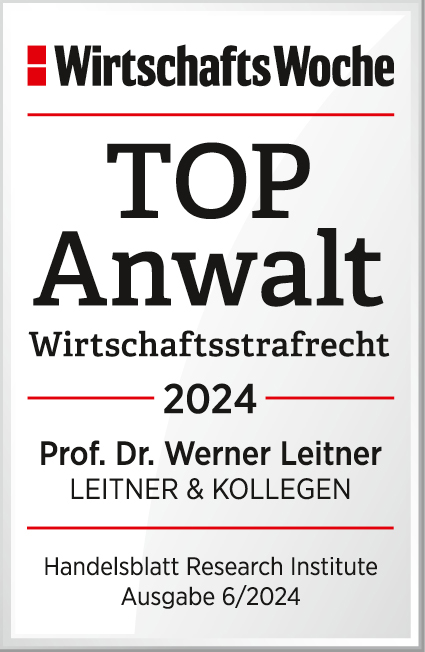
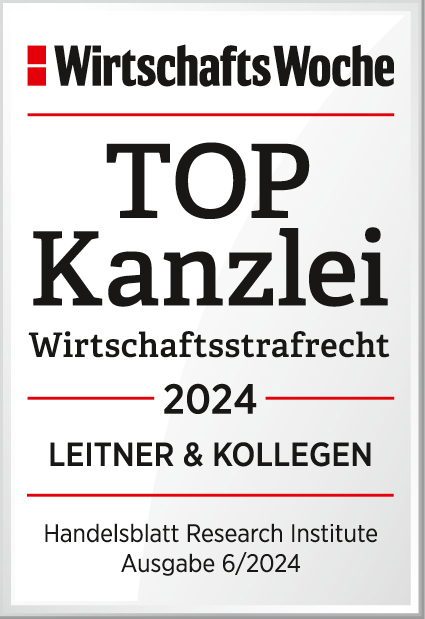
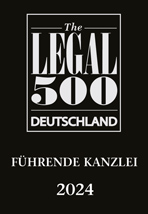
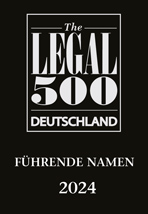
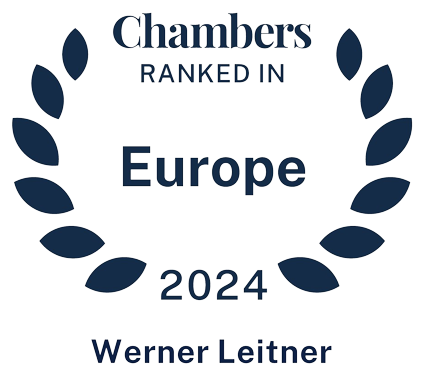










As specialists in criminal law since 1993, our skill in this area is flanked by extensive expertise in commercial and tax law.
Beyond having the necessary legal credentials, responsiveness, personal contact and a network of top experts are key to success in the practice of criminal law.
We strike an optimal balance between these strengths and our many years of experience, allowing us to train our sights on what is essential early on.
This includes the art of solving problems with as little fanfare as possible, while mounting a vigorous and, if necessary, uncompromising defense in court.
We advise, represent and defend individuals as well as business organizations.
Our clients include executives and public figures from the world of business, sports, politics, the arts and society. We also specifically advise lawyers, accountants and auditors.
Our corporate clients include banks, multinationals, public limited companies, SMEs, associations and entities from all areas of business and industry.
Our clients rely on our expertise, reputation and, above all, our discretion.
Our day-to-day advisory practice revolves around applying the law relating to white collar crime and criminal tax law, an area of law that is constantly evolving. Criminal law in particular is a constant focal point for lawmakers. Calls for criminal justice and harsher penalties always become louder when politicians feel the need to respond to the public’s current moods.
This trend is also evident in business, as entrepreneurs are increasingly exposed to risks under criminal law. In many cases, we are involved in draft legislation and developments in case law at the time of their inception.
Prof. Dr. Werner Leitner served as Chairman of the Executive Committee of the Criminal Law Section (AG Strafrecht) of the German Bar Association (Deutscher Anwaltverein, “DAV”) from 2004 to 2016. He is a regular guest on the criminal law committees of the German Bar Association and the Federal Bar Association (Bundesrechtsanwaltskammer), which lawmakers consult on a regular basis.
All the lawyers at our firm regularly contribute to the development of the law in the interests of our clients through their publications and talks.
The specialty of white collar crime and criminal tax law cannot be practiced in a vacuum; it involves other areas of the law. Today, a complex maze of commercial and tax law regulations converge with German criminal law doctrine in all its many intricacies.
We meet these high professional standards by working with the best of the best in all practice areas. Over the years, we have built up our network through reliable collaborations and active involvement in professional associations, research, education and policymaking.
Whatever the situation, we know the best lawyers, tax advisors, experts and other external specialists, including private detectives. Our recommendations are independent and based exclusively on the specific case; we have no affiliation nor any financial interest in the recommendations we make.
Of course, we also take into account existing client relationships and are happy to work together with our clients’ former advisors – always in the spirit of professional cooperation and never losing sight of the shared interests of our clients.
Werner Leitner has been a criminal defense lawyer since 1989 and a specialist in criminal law (Fachanwalt für Strafrecht) since 1997.
Upon completing his legal studies in Munich, he first worked as an attaché at the German Federal Foreign Office. He ended his career as a diplomat in 1989, joining the law firm of the star defense attorney Rolf Bossi as a young lawyer.
In 1993, he and fellow colleagues formed their own law firm, which quickly made a name for itself in the field of criminal law. To this day, he is the name partner of that law firm, which has operated since September 1, 2018 under the name LEITNER & KOLLEGEN.
Werner Leitner acts primarily as a defense counsel for his clients, but in many cases he also brings his experience to bear as a strategic advisor behind the scenes. This includes the art of making a convincing case in court and leveraging a broad professional network to solve problems as needed with as little fanfare as possible.
He teaches while collar crime and criminal procedure as an honorary professor at the University of Augsburg.
Werner Leitner is Honorary Chairman of the Criminal Law Section of the German Bar Association (DAV), the largest organization of defense lawyers in Europe, and was Chairman of its Executive Committee from 2004 to 2016. A major focus of his practice is the law governing the legal profession and ensuring an independent criminal defense.
From 2012 to 2022, he served as presiding judge at the Bavarian Lawyers’ High Court (Bayerischer Anwaltsgerichtshof) where he was also a member of the presidium.
Werner Leitner is the author of numerous publications on criminal law and criminal procedure. In 2017, the Nomos publishing house published the Kommentar zum Wirtschafts- und Steuerstrafrecht (Commentary on white collar crime and criminal tax law), of which he is co-editor. He is also co-editor of the law journal Strafverteidiger Forum (StraFo) (Criminal defense lawyers’ forum).
He is a frequent guest speaker on current legal policy issues at major professional conferences and for corporate executives. Werner Leitner also advises in English, French and Spanish.
Werner Leitner has been a criminal defense lawyer since 1989 and a specialist in criminal law (Fachanwalt für Strafrecht) since 1997.
Upon completing his legal studies in Munich, he first worked as an attaché at the German Federal Foreign Office. He ended his career as a diplomat in 1989, joining the law firm of the star defense attorney Rolf Bossi as a young lawyer.
In 1993, he and fellow colleagues formed their own law firm, which quickly made a name for itself in the field of criminal law. To this day, he is the name partner of that law firm, which has operated since September 1, 2018 under the name LEITNER & KOLLEGEN.
Werner Leitner acts primarily as a defense counsel for his clients, but in many cases he also brings his experience to bear as a strategic advisor behind the scenes. This includes the art of making a convincing case in court and leveraging a broad professional network to solve problems as needed with as little fanfare as possible.
He teaches while collar crime and criminal procedure as an honorary professor at the University of Augsburg.
Werner Leitner is Honorary Chairman of the Criminal Law Section of the German Bar Association (DAV), the largest organization of defense lawyers in Europe, and was Chairman of its Executive Committee from 2004 to 2016. A major focus of his practice is the law governing the legal profession and ensuring an independent criminal defense.
From 2012 to 2022, he served as presiding judge at the Bavarian Lawyers’ High Court (Bayerischer Anwaltsgerichtshof) where he was also a member of the presidium.
Werner Leitner is the author of numerous publications on criminal law and criminal procedure. In 2017, the Nomos publishing house published the Kommentar zum Wirtschafts- und Steuerstrafrecht (Commentary on white collar crime and criminal tax law), of which he is co-editor. He is also co-editor of the law journal Strafverteidiger Forum (StraFo) (Criminal defense lawyers’ forum).
He is a frequent guest speaker on current legal policy issues at major professional conferences and for corporate executives. Werner Leitner also advises in English, French and Spanish.
Julia Exner-Kuhn has been a lawyer at LEITNER & KOLLEGEN since 2016. Prior to that, she worked as a research assistant and assessor.
She studied law at the Ludwig Maximilian University of Munich, where she specialized in criminal justice, criminal defense and prevention. She also completed university-level professional language training in English and French.
She completed her legal clerkship in the district of the Higher Regional Court of Munich (Oberlandesgericht München), where she then passed the second state examination in 2013.
After that, Julia Exner-Kuhn began working at LEITNER & KOLLEGEN as a research assistance and assessor.
She is particularly interested in European criminal law, having written her doctoral thesis on the scope of application of the EU Charter of Fundamental Rights in German criminal law.
Together with Werner Leitner, she is a contributor to the Nomos Commentary on white collar crime and criminal tax law on the subjects of tax secrecy (§ 30 of the German Fiscal Code (AO)) and its protection under criminal law (§ 355 of the German Criminal Code (StGB)).
Julia Exner-Kuhn has been a member of the Executive Committee of the German Criminal Law Section of the German Bar Association (DAV) since November 2018. She is also co-editor of the law journal StraFo.
She is a member of the Munich Lawyers’ Association (Münchener Anwaltsverein) and the Munich Bar Association (Rechtsanwaltskammer München).
Languages: German, English and French.
Julia Exner-Kuhn has been a lawyer at LEITNER & KOLLEGEN since 2016. Prior to that, she worked as a research assistant and assessor.
She studied law at the Ludwig Maximilian University of Munich, where she specialized in criminal justice, criminal defense and prevention. She also completed university-level professional language training in English and French.
She completed her legal clerkship in the district of the Higher Regional Court of Munich (Oberlandesgericht München), where she then passed the second state examination in 2013.
After that, Julia Exner-Kuhn began working at LEITNER & KOLLEGEN as a research assistance and assessor.
She is particularly interested in European criminal law, having written her doctoral thesis on the scope of application of the EU Charter of Fundamental Rights in German criminal law.
Together with Werner Leitner, she is a contributor to the Nomos Commentary on white collar crime and criminal tax law on the subjects of tax secrecy (§ 30 of the German Fiscal Code (AO)) and its protection under criminal law (§ 355 of the German Criminal Code (StGB)).
Julia Exner-Kuhn has been a member of the Executive Committee of the German Criminal Law Section of the German Bar Association (DAV) since November 2018. She is also co-editor of the law journal StraFo.
She is a member of the Munich Lawyers’ Association (Münchener Anwaltsverein) and the Munich Bar Association (Rechtsanwaltskammer München).
Languages: German, English and French.
Martin Würfel has worked as a lawyer since 2015 and has been with LEITNER & KOLLEGEN since 2018. From the very outset, his practice has focused on white collar crime, with a special focus on medical criminal law.
Martin Würfel studied law at the Humboldt University of Berlin. He completed his legal clerkship in the district of the Higher Regional Court of Munich, where he then passed the second state examination in 2015.
He received his doctorate with a dissertation on legal history (“Das Reichsjustizprüfungsamt” (The Third Reich’s Ministry for the Examination of Law Students)) dealing with legal education under the National Socialist regime. The work was widely reviewed and selected as one of the “Law books of 2019” in the law journal Neue Juristische Wochenschrift (NJW 43/2019). He regularly contributes to professional publications on the subject of criminal law and criminal procedure.
Martin Würfel is a member of the Criminal Law Section of the German Bar Association (DAV), the Munich Lawyers’ Association and the Munich Bar Association.
Languages: German, French (second native language) and English.
Martin Würfel has worked as a lawyer since 2015 and has been with LEITNER & KOLLEGEN since 2018. From the very outset, his practice has focused on white collar crime, with a special focus on medical criminal law.
Martin Würfel studied law at the Humboldt University of Berlin. He completed his legal clerkship in the district of the Higher Regional Court of Munich, where he then passed the second state examination in 2015.
He received his doctorate with a dissertation on legal history (“Das Reichsjustizprüfungsamt” (The Third Reich’s Ministry for the Examination of Law Students)) dealing with legal education under the National Socialist regime. The work was widely reviewed and selected as one of the “Law books of 2019” in the law journal Neue Juristische Wochenschrift (NJW 43/2019). He regularly contributes to professional publications on the subject of criminal law and criminal procedure.
Martin Würfel is a member of the Criminal Law Section of the German Bar Association (DAV), the Munich Lawyers’ Association and the Munich Bar Association.
Languages: German, French (second native language) and English.
Our legal practice areas
This list does not purport to be exhaustive. The range of services we offer is much broader and we would be happy to meet with you personally to discuss the scope of any potential engagement.
Counseling in advance
No one ever intentionally seeks an encounter with the criminal justice system. As a rule, our clients turn to us when they are faced with the need to defend themselves against a specific criminal charge. However, experience has shown that clients who obtain legal advice early on are more likely to be able to avoid criminal proceedings and thus the need to mount a legal defense.
Particularly in business and corporate decision-making scenarios, it can be useful to seek the advice of a criminal law expert in addition to the opinion of general legal counsel on the proper exercise of "business judgement".
For self-assured decision-makers, this is not a sign of a guilty conscience, but only further demonstrates their ability to consider issues from all sides and handle them professionally.
The documented advice of a criminal law expert generally means that the business decision made cannot be challenged in retrospect, even under criminal law.
Defense in preliminary investigations
Being the subject of a criminal investigation is hardly something that anyone ever reckons with. But the risk is greater than it appears. German investigative authorities process approximately five million preliminary investigation proceedings every year, and the trend is rising. Of those, around one million cases land in court.
Acting as defense counsel in preliminary investigations is our bread and butter. For our clients, such investigations are almost always an absolutely exceptional situation that disrupts every aspect of their daily lives and plans for the future.
We are all too familiar with these situations and realize how important it is to bring them to a swift conclusion and as painlessly as possible for our clients.
In the interest of our clients, we avoid having to go to court whenever possible and are proud of the fact that we have managed to do this even in difficult cases.
Emergency assistance with search warrants
Many investigations start with a house search and thus with no forewarning for those involved, be it privately, at the workplace or in the company. The Internet is full of good advice about what to do in this situation,
but in practice such advice is of little use when officers are suddenly standing at the door with a search warrant in their hands. The only thing that really helps in dealing with such an unforeseen situation wisely is to call a trusted lawyer immediately, which the officers are required to allow.
We are very experienced in managing both major and minor searches, and in many cases a single phone call will suffice to clarify the situation with investigators and thus prevent any unpleasant complications for the parties involved.
Ideally, we would be on the scene immediately to steer the process with the investigators in such a way that the parties involved do not have to bother themselves or others with the matter. In many cases, the groundwork for the outcome of the proceedings is laid at this early stage.
Pretrial detention
Pretrial detention is one of the most serious infringements of a person's constitutional rights known in German law. It is hard to imagine how serious a situation this is for the detainee, their family, their employer, coworkers and their lives as a whole.
One of the most important tasks of the criminal defense lawyer is to keep the stress and strain to a minimum and alleviate it as soon as possible. If the arrest warrant is not lifted quickly, this also includes seeking to obtain early release from custody, be it through pretrial bail, supervision requirements, or by taking other steps.
The health of the detainee is also a factor that must be taken into consideration. We are all too familiar with the concerns and hardships faced by pretrial detainees and their families and the myriad of problems great and small that come with incarceration.
We advise and attend closely to our clients and their families in detention cases, always with the aim of ensuring the detainee's release as soon as possible.
Indictment and trial
In the past, public trials served to protect defendants from being tried in secret; today, the defendants must face public exposure. This is true not only for celebrities, who are literally made a spectacle of and humiliated in the media, but also to a certain extent for everyone, since, with the exception of juvenile cases, criminal trials are generally open to the public.
Therefore, the primary objective of the defense is to avoid going to trial. This is not always possible, and unfortunately in some instances it is unavoidable. In those cases, the trial must be seen as an opportunity, and an acquittal can also be truly redemptive and rehabilitate the defendant.
We bring our experience and qualifications to bear in mounting a professional and successful defense. We discuss and extensively prepare our defense strategy with the client,
taking as much time as necessary to explain the facets of the upcoming trial. Such extensive pretrial preparation not only eases defendants' uncertainty but also goes a long way to help ensure that important and exculpatory information is brought before the court. The results speak for themselves.
Appeals
Sometimes defendants do not prevail in the first instance and the judgments must be appealed. In such cases, German criminal procedure provides for two very distinct remedies. Judgments of the local courts (Amtsgerichte) may either be appealed on points of fact and law (Berufung) or appealed on points of law (Revision) as the final instance.
Under German law, an appeal on points of fact and law is essentially a trial de novo, while an appeal on points of law involves a judicial review of errors in the lower court's application of the law and procedural errors, which takes place in a predominantly written procedure and ideally leads to the case being remanded back to the lower court and retried.
When it comes to a defense strategy, these two forms of appeal require two completely different approaches that must be carried out in close coordination with the client.
We advise on and represent clients in both forms of appeal, adapting our defense strategy depending on the individual case and always with the aim of achieving the best outcome for our client.
Injured parties
Encounters with the criminal justice system often occur on the injured party's side. Individuals and companies in particular often find themselves the "victim" of crimes committed by third parties. Prosecuting the rights of injured parties who have suffered financial loss and/or personal injury requires both sensitivity and experience.
Our tasks include fact finding, filing criminal charges, inspecting files and representing clients in criminal proceedings and in actions ancillary to trial.
We understand the stress and strain that criminal proceedings entail for injured parties and seek to alleviate the tension by providing professional support.
When the injured parties are companies, we act as the primary point of contact with the investigative authorities, thus ensuring that the company meets its fact-finding and oversight obligations to the extent required by law.
Representation of witnesses
For most people, encounters with the criminal justice system occur when they are compelled to appear as witnesses in criminal proceedings. It usually comes as a complete surprise when a person is compelled to testify by subpoena from the police, the public prosecutor's office, or a subpoena to appear as a witness in court.
The reasons for seeking witness testimony can be complex and often the witnesses themselves do not understand why they are being compelled to appear. "I can't say anything of importance" or "I've already told the police everything" are common responses. Witnesses also have a right to be advised and represented by counsel when they give testimony. This is common knowledge.
Beyond this, it's also about critically assessing witness rights, such as the right to refuse to provide information about close relatives or to avoid the risk of exposing themselves to criminal prosecution by giving self-incriminating testimony.
Particularly for witnesses in criminal proceedings, we recommend that they consult an experienced criminal lawyer early on in order to avoid unpleasant and unforeseen situations during the witness examination. This includes obtaining detailed information on the general rights and obligations of witnesses and individual advice on what exactly to expect during examination.
Corporate compliance
"Compliance" has become a buzzword, particularly in criminal law. This is a consequence of major international investigations conducted in recent years which have also involved major German corporations.
The term "compliance" has its origins in U.S. law and is difficult to translate into German legal parlance, just as the notion of compliance as a whole is difficult to pin down in the German legal system. After all, is it not self-evident that all legal rules must be complied with?
While the meaningfulness of compliance may remain open for debate, it is impossible to imagine the corporate world without it. It affects multinational DAX corporations and sound SMEs, associations and public sector entities alike. No company and no company executives can afford to ignore the necessity of compliance. The German Federal Court of Justice made sure of this with a decision in 2009, imposing criminal liability on an officer in the company for the "integrity of the area of responsibility he had assumed" ("Criminal liability of the compliance officer").
Today, "compliance" is part of good corporate governance. Properly implemented, it protects the company and its employees and even strengthens the organization's reputation. However, it is important to specifically define the requirements and its implementation must be tailored to the needs of the company. Over-regulation through excessive compliance requirements can in some cases be just as detrimental to corporate goals as no compliance at all.
We are regularly called upon to develop new compliance structures for SMEs or review and revise existing systems. This also includes drafting customized codes of conduct and ongoing compliance monitoring as well as internal staff training. The benefit to the company is clear.
Consulting with experts and having them design and implement a compliance system is the best way to ensure that all legal and commercial aspects are properly taken into account.
Internal investigations
Many organizations are now turning to external experts to investigate internal misconduct and having such internal investigations conducted by major international law firms. However, what at first glance would appear to be the logical and most efficient solution often proves to be both technically and legally complicated in practice.
There are a variety of competing interests that must be taken into account: the requirements of the investigative and tax authorities on the one hand and the company's duty of care toward its employees on the other. Criminal law collides with employment law, rights to refuse information under criminal law collide with duties to cooperate under employment law. Then add to the mix the fact that different legal systems (continental versus Anglo-American, Germany versus the U.S.) may come into play and quite possibly an increased media interest in the outcome of the investigation.
All of this raises a host of legal issues which are the subject of heated debate in the literature and in practice, but which in the end remain largely unresolved.
We advise companies on how to structure and implement internal investigations, as well as individuals who are questioned in the context of those investigations. And these involve some of today's most high-profile internal investigations. As criminal lawyers, it is particularly important to uphold criminal law standards in this regard.
In our view, internal investigations and fact finding must not be conducted "at any cost". Where constitutionally guaranteed rights of individuals (nemo tenetur se ipsum accusare/"no one is bound to incriminate himself") are affected, the company's interest in fact finding – just as that of the investigative authorities – must take a back seat in individual cases. Private internal investigators may not be given broader rights than the police and public prosecutors.
Voluntary self-disclosure to avoid penalties – criminal tax law
One focus of our practice is advising and defending clients in criminal tax cases. Criminal tax law has gained in importance in recent years. This is due in part to high-profile (and in our view illegal) purchases of tax CDs by the state and its authorities. It also stems from the fact that the tax authorities as a whole are increasingly using criminal law as a cudgel to crush and eliminate complex tax cases, i.e., using the threat of criminal penalties to coerce taxpayers into agreeing actual settlements.
It is not uncommon to see stagnating tax audits give way to criminal proceedings as a means for the tax authorities to move the matter along. The case law of the German Federal Court of Justice (BGH) has done the rest, increasing the threat of penalties by lowering the relevant loss amounts. For example, the Court ruled that a particularly serious case of tax evasion is now to be assumed where the alleged tax loss amounts to EUR 50,000 or more and a suspended sentence with probation is to be routinely denied where the tax loss amounts to EUR 1 million or more.
In recent years, we have successfully assisted our clients with numerous voluntary self-disclosures to avoid penalties. We usually coordinate our defense in the criminal tax proceedings with the client's tax advisor or another external expert. Our focus is on the criminal law implications and risks, which we assess and strategically structure in connection with the taxation process. This also includes ad hoc issues involving tax correction, contesting tax assessments and suspending the enforcement thereof, depositing advance payments and other considerations relevant under criminal law.
We understand the financial and personal pressures associated with voluntary self-disclosures and criminal tax proceedings, and do our part to help the parties involved sleep soundly again.
One more thing – road traffic law
Because of the trusting relationship we have with our clients and the fact that many of them have a penchant for high-performance vehicles, we are repeatedly called upon to deal with issues of road traffic law.
We are happy to assist our clients in this regard and continue to cultivate this small area of specialization while still addressing the finer points of white collar crime.
LEITNER & KOLLEGEN
Rechtsanwälte · Wirtschaftsstrafrecht
Herzogspitalstr. 5
80331 Munich
Tel.: +49 89 23 11 75 0
Fax: +49 89 23 11 75 55
www.leitner-partner.de
info@leitner-partner.de
Office hours:
You can reach our office
Monday to Thursday from 8:30 a.m. to 6:00 p.m. and Friday from 8:30 a.m. to 5:00 p.m. and by appointment.
Directions
Parking Sufficient parking is always available for our visitors in the office courtyard. A quick call from the driveway is all it takes to open the gate: +49 89 23 11 75 0
LEITNER & KOLLEGEN, Lawyers Commercial Criminal Law
Prof. Dr. Werner Leitner
Herzogspitalstrasse 5, 80331 Munich
Phone +49 89 231175-0
Fax +49 89 231175-55
Email: info@leitner-partner.de
Internet: www.leitner-partner.de
VAT number: 145/169/30560
Responsible supervisory authority or chamber:
The lawyers are admitted under the law of the Federal Republic of Germany and are members of the Munich Bar Association, Tal 33, 80331 Munich, info@rak-muenchen.de, www.rak-muenchen.de
Professional regulations:
Professional liability:
The lawyers have professional liability insurance with Gothaer Allgemeine Versicherung AG, Gothaer Allee 1, 50969 Cologne. The insurance applies (spatially) to Germany and other European countries.
Disclaimer:
We have carefully checked the content of this site, but do not assume any guarantee or liability for the correctness, completeness or topicality of the information provided.
Despite careful content control, we assume no liability for the content of external links. The operators of the linked pages are solely responsible for their content.
DATA PROTECTION
General note and mandatory information
Naming of the responsible body
The responsible body for data processing on this website is:
LEITNER & KOLLEGEN, Lawyers Commercial Criminal Law
Prof. Dr. Werner Leitner
Herzogspitalstrasse 5
80331 Munich
The responsible body decides alone or together with others on the purposes and means of processing personal data (e.g. names, contact details, etc.).
Revocation of your consent to data processing
Some data processing operations are only possible with your express consent. You can revoke your consent that you have already given at any time. An informal message by e-mail is sufficient for the revocation. The legality of the data processing that took place up until the revocation remains unaffected by the revocation.
Right to lodge a complaint with the competent supervisory authority
As a data subject, you have the right to lodge a complaint with the competent supervisory authority in the event of a breach of data protection law. The competent supervisory authority with regard to data protection issues is the state data protection officer of the federal state in which our company is based. The following link provides a list of data protection officers and their contact details: https://www.bfdi.bund.de/DE/Infothek/Anschriften_Links/anschriften_links-node.html.
Right to data portability
You have the right to have data that we process automatically on the basis of your consent or in fulfillment of a contract handed over to you or to third parties. It is provided in a machine-readable format. If you request the direct transfer of the data to another person responsible, this will only be done to the extent that it is technically feasible.
Right to information, correction, blocking, deletion
You have the right to free information about your stored personal data, the origin of the data, its recipient and the purpose of the data processing and, if necessary, a right to correction, blocking or deletion of this data at any time within the framework of the applicable legal provisions. You can contact us at any time using the contact options listed in the legal notice if you have any further questions on the subject of personal data.
SSL or TLS encryption
For security reasons and to protect the transmission of confidential content that you send to us as the site operator, our website uses an SSL or. TLS encryption. This means that data that you transmit via this website cannot be read by third parties. You can recognize an encrypted connection by the “https://” address line of your browser and by the lock symbol in the browser line.
Server log files
The provider of the website automatically collects and stores information in server log files, which your browser automatically transmits to us. These are:
This data is not merged with other data sources. The basis for data processing is Art. 6 Paragraph 1 lit. b GDPR, which allows the processing of data to fulfill a contract or pre-contractual measures.
Cookies
Our website uses cookies. These are small text files that your web browser stores on your end device. Cookies help us to make our offer more user-friendly, effective and secure.
Some cookies are “session cookies.” Such cookies are automatically deleted at the end of your browser session. On the other hand, other cookies remain on your end device until you delete them yourself. Such cookies help us to recognize you when you return to our website.
With a modern web browser you can monitor, restrict or prevent the setting of cookies. Many web browsers can be configured in such a way that cookies are automatically deleted when the program is closed. The deactivation of cookies can result in limited functionality of our website.
The setting of cookies, which are necessary to carry out electronic communication processes or to provide certain functions you want (e.g. shopping cart), takes place on the basis of Art. 6 Para. 1 lit. f GDPR. As the operator of this website, we have a legitimate interest in the storage of cookies for the technically error-free and smooth provision of our services. If other cookies are set (e.g. for analysis functions), they will be treated separately in this data protection declaration.

